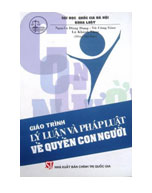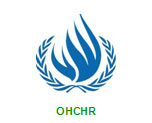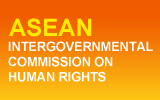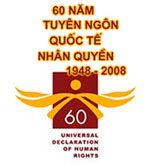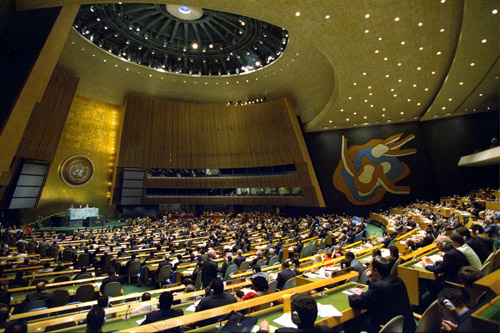
Các cam kết này liên quan đến nhiều khía cạnh chính sách, pháp luật, hoạt động của các cơ quan lập pháp, hành pháp và tư pháp, cũng như liên quan đến nhiều nhóm quyền khác nhau. Các nhóm, tổ chức xã hội dân sự có thể bám sát các cam kết liên quan đến lĩnh vực mình quan tâm để vận động cải cách, cải thiện thực trạng. Các cam kết cụ thể là:
1. Thông qua các chính sách và các biện pháp để đảm bảo tốt hơn tất cả các quyền cơ bản về kinh tế, xã hội, văn hóa, dân sự và chính trị theo thông lệ quốc tế đã công nhận.
2. Đạt Các Mục tiêu Phát triển Thiên niên kỷ.
3. Tiếp tục cải thiện hệ thống luật pháp và tư pháp, xây dựng nhà nước pháp quyền và kiện toàn các thiết chế trong nước về bảo vệ nhân quyền, bao gồm việc có thể thành lập một cơ quan nhân quyền quốc gia.
4. Thông qua các chính sách và các biện pháp, tăng cường các nguồn lực để đảm bảo an sinh xã hội và công lý, đặc biệt với quyền của những nhóm dễ bị thương tổn, như phụ nữ, trẻ em, người cao tuổi, người khuyết tật và các dân tộc thiểu số.
5. Thúc đẩy giáo dục nhân quyền để tăng cường nhận thức và năng lực cho các cơ quan hành pháp để đảm bảo tốt hơn các quyền và tự do căn bản của người dân
6. Tiếp tục thực hiện những khuyến nghị Việt Nam đã chấp nhận trong cơ chế Kiểm điểm Định kỳ Phổ quát (UPR) năm 2009 và tham gia một cách có trách nhiệm và xây dựng trong kỳ UPR thứ hai.
7. Tăng cường dân chủ cơ sở và sự tham gia của người dân vào việc lập kế hoạch và thực thi chính sách, và cải thiện sự gắn kết của Việt Nam với các tổ chức chính trị, xã hội làm việc trong lĩnh vực nhân quyền.
8. Tham gia tích cực, xây dựng và có trách nhiệm vào công việc của Hội đồng để đóng góp vào việc tăng cường hiệu quả, tính minh bạch, khách quan và cân bằng của Hội đồng, trên tinh thần đối thoại và hợp tác.
9. Tăng cường hợp tác và đối thoại với các cơ chế nhân quyền LHQ, đặc biệt với các Ủy ban Công ước và Văn phòng Cao ủy Nhân quyền LHQ, các thủ tục đặc biệt, bao gồm việc có thể mời thêm các chuyên gia thăm Việt Nam.
10. Ủng hộ và tích cực tham gia vào các cuộc tham vấn liên chính phủ về tăng cường năng lực và hiệu quả của các Ủy ban Công ước.
11. Tham gia và đóng góp vào việc thúc đẩy hợp tác nhân quyền ở ASEAN, đặc biệt trong khuôn khổ AICHR và thực thi Tuyên bố Nhân quyền ASEAN.
12. Duy trì các đối thoại nhân quyền song phương và cơ chế hợp tác với các quốc gia đối tác, với mục tiêu chung về thúc đẩy và bảo vệ nhân quyền trên thế giới.
13. Hoàn thành thủ tục nhanh chóng tham gia Công ước chống Tra tấn.
14. Hoàn thành thủ tục phê chuẩn Công ước về Quyền của Người khuyết tật.
-------------------------------------------
Toàn văn lời trình bày và Phụ lục (văn bản) kèm theo, được lưu trong hồ sơ của Đại hội đồng Liên Hợp Quốc, như sau:
Sixty-eighth session
Item 115 (c) of the provisional agenda*
Elections to fill vacancies in subsidiary organs and other
elections: election of 14 members of the Human Rights Council
Note verbale dated 27 August 2013 from the Permanent Mission
of Viet Nam to the United Nations addressed to the President
of the General Assembly
The Permanent Mission of the Socialist Republic of Viet Nam to the United
Nations presents its compliments to the President of the sixty-seventh session of the
General Assembly and has the honour to inform him that the Government of the
Socialist Republic of Viet Nam has decided to present its candidature for
membership in the Human Rights Council for the term 2014-2016 at the elections to
be held in New York in November 2013. This is the first time Viet Nam is seeking a
membership to the Human Rights Council and its candidature has been endorsed by
Association of Southeast Asian Nations (ASEAN) member States.
In this regard, the Government of Viet Nam has the honour to submit an
aide-memoire containing voluntary pledges and commitments assumed by Viet Nam
to contribute to the promotion and protection of human rights, in accordance with
resolution 60/251 of the General Assembly (see annex). The Permanent Mission of
Viet Nam to the United Nations would be grateful if the present note verbale and its
annex, could be included in the final document to be produced for the forthcoming
elections and circulated to Member States.
Annex to the note verbale dated 27 August 2013 from the
Permanent Mission of Viet Nam to the United Nations
addressed to the President of the General Assembly
Viet Nam’s candidacy to the United Nations Human Rights
Council for the term 2014-2016: voluntary pledges under
resolution 60/251
The Government of the Socialist Republic of Viet Nam has decided to put
forward its candidacy to the United Nations Human Rights Council for the term
2014-2016 at the elections to be held in November 2013 during the sixty-eighth
session of the United Nations General Assembly.
Viet Nam is the only candidate among ASEAN member States. It has never
served on the Human Rights Council, despite its capacity to contribute to the work
of the Council. Therefore, opportunities should be given to countries like Viet Nam.
Building on the achievements and experience resulting from 26 years of
comprehensive reform known as “Doi moi”, based on the three pillars of economic
growth, social progress and equity, and human rights, Viet Nam wishes to join the
Human Rights Council in order to share that experience and contribute more
actively to the joint efforts of the Council and the international community at large,
with a view to better promoting and protecting human rights worldwide.
As provided for in General Assembly resolution 60/251, Viet Nam undertakes
the following voluntary pledges.
I. Promotion and protection of human rights at the national, regional
and international levels
At the national level
In Viet Nam, the people are the ultimate goal and the engine of development.
Every policy aims at serving the people. The consistent policy of the State of Viet
Nam on ensuring human rights stems from the earnest aspiration of the people of a
former colony to enjoy civil and political rights and of the people of poor countries
to enjoy economic, social and cultural rights. Respect for and promotion of human
rights also form an essential element in achieving sustainable development, as
clearly manifested in the Constitution and relevant laws, in their implementation
mechanisms and in practice.
All economic, cultural, social, political and civil rights of the person are fully
provided for in the Viet Nam Constitution. The contents of these fundamental and
universal human rights have been continually concretized and improved in laws and
by-laws, in accordance with the spirit and standards enshrined in the Universal
Declaration of Human Rights. This provides a solid legal framework for the
formulation of policies, strategies and development plans for the fundamental rights
and freedoms of the people.
The mechanisms for the promotion and protection of human rights in Viet Nam
are developed in accordance with the principle of a rule-of-law State of the people,
by the people and for the people under the motto “people know, people discuss,
people do, people check”. It is the people who decide all matters of State and society,
have rights and enjoy favourable conditions to actively participate in the affairs of State
and society through the National Assembly, national authorities at all
levels and political-social organizations. Through these mechanisms, their rights are
guaranteed from policy planning to implementation and monitoring. Viet Nam has
implemented, in a uniform manner, socioeconomic development strategies, legal,
judiciary and administrative reforms, and has strengthened the grass-roots
democracy regime in order to better meet the rights and fundamental freedoms of
the people.
The rights and fundamental freedoms of the people are respected and ensured
in an increasingly effective and full manner, particularly in the following areas:
(a) In the past 5 years, annual economic and GDP growth has been
maintained at a high level of around 6 per cent, while 8 million new jobs have been
created, the urban unemployment rate has fallen to 4.5 per cent, the poor household
rate has been reduced to 9.5 per cent, social security has been strengthened and
enjoyment of health services increased, particularly for children, the poor people
and ethnic minorities. The Human Development Index has continuously increased.
Viet Nam has achieved many of the Millennium Development Goals ahead of
schedule and is on track to reach the remaining ones;
(b) In addition to these achievements, the participatory processes and voice
of the people has been enhanced. The rights of the people are better ensured through
better implementation of direct democratic rights (right to vote and right to stand for
elections), indirect democratic rights (through elected organs, such as the National
Assembly and the People’s Councils at all levels), the right to express opinions and
improved operation of complaint and denunciation mechanisms. The information
and press services in Viet Nam have greatly increased both in quantity and type. The
access and application of information technology and the Internet have also rapidly
developed, and Viet Nam is considered by United Nations specialized agencies as
one of the leading countries in this area. The faith and religious activities have
become more diverse and vivid, with the development of all major world religions
and endogenous religions and faiths in terms of the number of organizations and
followers, religious facilities, places of worship, training facilities, publications, etc.
At the global and regional levels
Viet Nam implements a foreign policy based on independence, self-reliance
and comprehensive international integration for peace, cooperation and
development. Viet Nam actively participates, in a constructive and responsible
spirit, in international and regional cooperation, multilaterally and bilaterally, in all
areas, including the protection and promotion of human rights.
Viet Nam is a party to eight important international treaties relating to human
rights, including the International Covenant on Economic, Social and Cultural
Rights, the International Covenant on Civil and Political Rights, the International
Convention on the Elimination of All Forms of Racial Discrimination, the
Convention on the Elimination of All Forms of Discrimination against Women and
the Convention on the Rights of the Child (Viet Nam was the first Asian country to
ratify this Convention). In addition, Viet Nam is a party to 18 conventions of the
International Labour Organization. Viet Nam has always respected and implemented
seriously the international human rights treaties, to which it is a State party.
Viet Nam has also cooperated well with the treaty bodies and fulfilled its periodic
reporting obligations. In 2012, Viet Nam presented periodic reports to the
Committees on the Elimination of Racial Discrimination and the Rights of the
Child, while also preparing a report on the implementation of the International
Covenant on Economic, Social and Cultural Rights; in 2013, a report will be
presented on the implementation of the Convention on the Elimination of All Forms
of Discrimination against Women.
In December 2011, Viet Nam ratified the United Nations Convention on
Transnational Organized Crime and its Protocol to Prevent, Suppress and Punish
Trafficking in Persons, Especially Women and Children. Viet Nam is now carrying
out ratification procedures with regard to the Convention on the Rights of Persons
with Disabilities and considering its accession to the Convention against Torture. In
addition, Viet Nam voted in favour of a resolution on a comprehensive and integral
international legal instrument to promote and protect the rights and dignity of older
persons and will proactively engage in the formulation of this instrument.
Viet Nam has actively engaged in international activities on human rights
within the United Nations bodies and forums. Viet Nam was a member of and
contributed actively to the work of the Commission on Human Rights (2001-2003),
the Economic and Social Council (2000-2002), the Commission for Social
Development (2002-2004 and 2012-2014) and the Security Council (2008-2009).
Within the Security Council, Viet Nam presided over the negotiations on the
presidential statement entitled “Children and armed conflict” and resolution 1889
(2009) entitled “Women and peace and security”.
Viet Nam attaches special importance to and actively participates in the work
of the Human Rights Council. Viet Nam values the Universal Periodic Review
(UPR) as an effective process to share information and experience and enhance
mutual understanding among countries, thus helping to promote and protect human
rights. Viet Nam presented its first UPR report in 2009, which was much welcomed
by Member States and the Council thanks to its diverse content and constructive
approach. Viet Nam accepted 93 of the 123 UPR Working Group recommendations
(nearly 80 per cent) and is actively implementing those recommendations. Viet Nam
has enhanced dialogue and cooperation with special procedures. In addition to
replying in a timely manner to all communications since July 2010, Viet Nam has
received four special procedures on minority issues, extreme poverty and human
rights, the effects of foreign debt on human rights and the right to health. Viet Nam
will receive additional special procedures on the right to education and the right to
food as committed.
Viet Nam has contributed to strengthening solidarity and cooperation within
ASEAN, including human rights cooperation, particularly in the development of the
ASEAN Charter and the ASEAN Community building process, and the
establishment and operation of the ASEAN Intergovernmental Commission on
Human Rights (AICHR). In 2010, as Chair of ASEAN and AICHR, Viet Nam took
the lead in formulating AICHR’s five-year workplan, improving its working
methods and promoting cooperation with ASEAN partners, including the United
Nations. Viet Nam also worked actively with other members in drafting the ASEAN
Human Rights Declaration. This Declaration, approved at the ASEAN Summit in
November 2012, reaffirmed the ASEAN commitment to human rights, in line with
internationally recognized norms and standards. The Declaration creates theframework
for ASEAN cooperation to promote and protect human rights in the region.
Viet Nam has, lastly, enhanced bilateral cooperation and dialogue in human
rights with partner countries to share information and experience in order to better
ensure human rights in Viet Nam and relevant countries. Viet Nam holds annual
human rights dialogues with Australia, the European Union, Norway, Switzerland
and the United States, the outcomes of which are positively appreciated.
II. Viet Nam’s voluntary commitments as a member of the Human
Rights Council
1. Adopt policies and measures and increase resources to better ensure all
fundamental economic, social, cultural, civil and political human rights in line with
internationally recognized norms.
2. Achieve the Millennium Development Goals.
3. Continue to improve the legal and judicial systems, build a rule-of-law State
and strengthen national institutions protecting human rights, including the possible
establishment of a national human rights institution.
4. Adopt policies and measures and increase resources to ensure social security,
welfare and justice, particularly the rights of vulnerable groups, such as women,
children, the elderly, people with disabilities and ethnic minorities.
5. Promote human rights education and training to improve the awareness and
capacity of law-enforcement agencies to better ensure peoples’ rights and
fundamental freedoms.
6. Continue to implement the recommendations that Viet Nam has accepted in the
first UPR cycle in 2009, and to participate in a responsible and constructive manner
in the second UPR cycle.
7. Strengthen grass-roots democracy and the people’s involvement in the
planning and execution of policies, and improve Viet Nam’s engagement with
political, social organizations working in the field of human rights.
8. Participate in an active, constructive and responsible manner in the work of the
Council to contribute to strengthening the Council’s efficiency and effectiveness,
transparency, objectivity and balance, in the spirit of dialogue and cooperation.
9. Strengthen cooperation and dialogue with United Nations human rights
mechanisms, particularly treaty bodies and Office of the United Nations High
Commissioner for Human Rights special procedures, including possible invitations
for additional country visits to Viet Nam.
10. Support and actively participate in intergovernmental consultations on
improving the capacity and effectiveness of human rights treaty bodies.
11. Participate in and contribute to the promotion of ASEAN human rights
cooperation, particularly in the AICHR framework and in the implementation of the
ASEAN Human Rights Declaration.
12. Maintain bilateral human rights dialogue and cooperation mechanisms with
partner countries, with the common goal of promoting and protecting human rights in the world.
13. Complete procedures for early accession to the Convention against Torture.
14. Complete procedures for the ratification of the Convention on the Rights of Persons with Disabilities.

